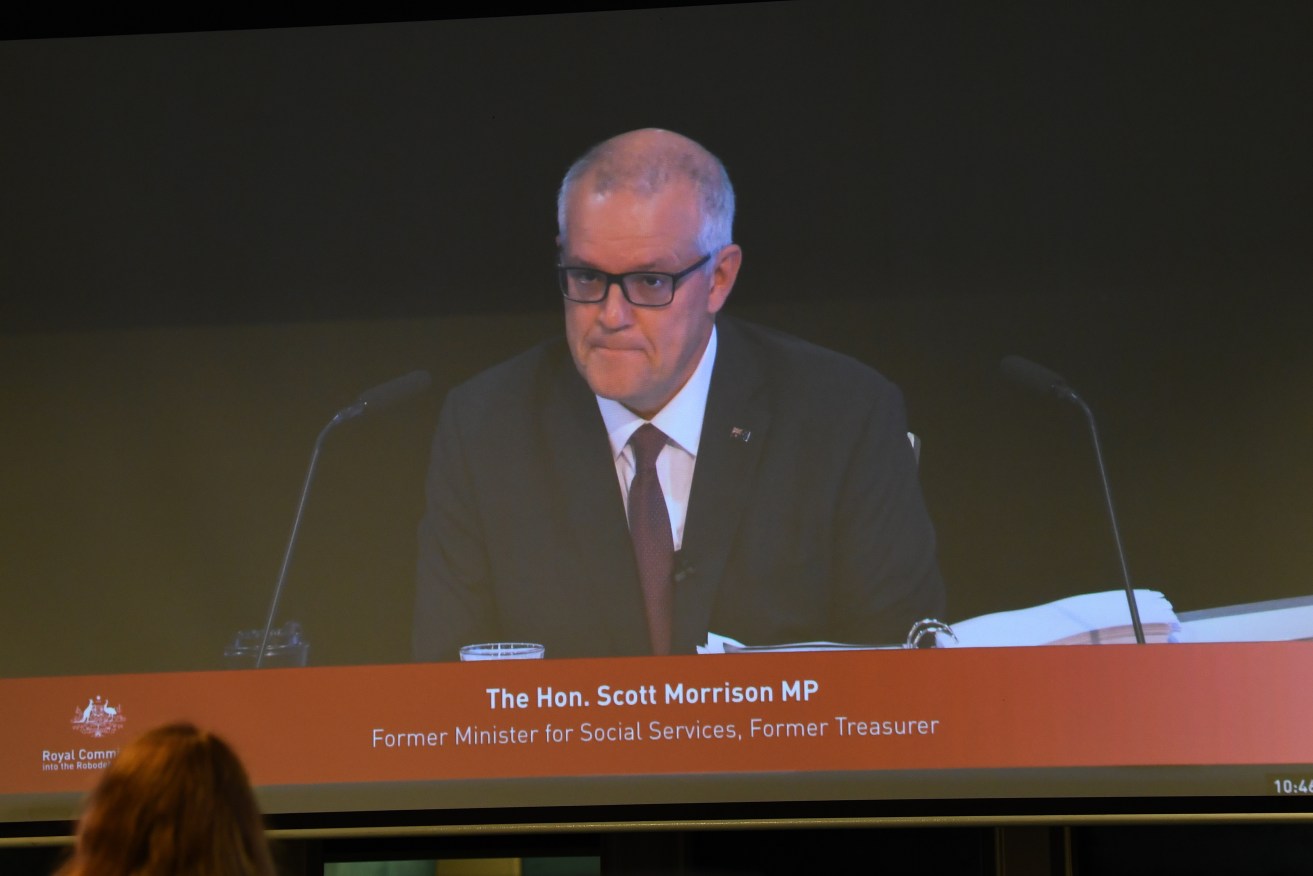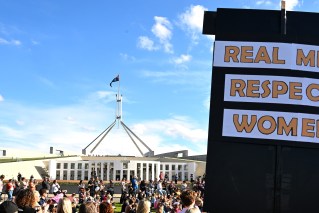‘Are you listening at all’: Morrison under pressure at robodebt inquiry
Former prime minister Scott Morrison says he was focused on tackling welfare fraud and not privy to departmental discussions over the legality of the disastrous robodebt scheme.

Former prime minister Scott Morrison appears via video link before the Royal Commission into the Robodebt Scheme. (AAP Image/Jono Searle)
At several points while giving evidence to a royal commission into the scheme on Wednesday, Morrison had to be told to stay on topic and listen to questions.
Robodebt involved using individuals’ annual tax information provided by the ATO to determine average fortnightly earnings and automatically establish welfare debts, an approach ruled unlawful by the Federal Court in 2019.
Morrison was grilled over why the changes to welfare debt protocols were adopted despite concerns about their legality when he was social services minister in 2015.
Records show the then-minister signed a departmental document which stated legislative change could be necessary, a note that was absent when the policy was later presented to cabinet for consideration.
Straying well off script as the inquiry progressed, Morrison delved into the ins and outs of departmental process and at one point brought the inquiry to a standstill over concerns of violating parliamentary privilege.
The frustrated commissioner, former Queensland chief justice Catherine Holmes SC, asked the former prime minister at one point: “Are you listening at all?”
“I do understand that you come from a background where rhetoric is important,” she said.
“But it is necessary to listen to the question and just answer it without … unnecessary detail if you can.”
Former Labor leader and now Government Services Minister Bill Shorten described Morrison’s conduct in the commission as “triggering”, when taking into account the hundreds of thousands of Australians affected by the scheme.
“Scott Morrison had an opportunity today to attend the royal commission, to personally apologise, to accept personal responsibility,” Shorten told reporters.
“Instead, what we got was … lecturing, hectoring, not answering questions, splitting hairs on simple yes-no questions.
“It is a defensive lecture about why everyone else is wrong and he’s right.”
Morrison told the commission he was not privy to communications between the departments and he assumed the concerns had been settled.
He said there was an “evolving understanding” of what was required to implement the policy and this changed by the time it was presented to cabinet.
“By the time of the submission going to cabinet, that view …had changed and advice was given that legislation was not required, by the department,” he said.
Holmes questioned why Morrison was not then interested in inquiring how the legislative issues raised by his own department had been resolved.
“How is it that you were content to just see ‘no legislation required’ and leave it at that?” she asked.
Morrison replied, “because commissioner, that is how the cabinet process works”.
“I was satisfied that the department had done their job.”
Morrison said he took on the social services portfolio with the express aim of overhauling the welfare system and reducing rorts.
As well as the legal concerns, early proposals for the scheme identified potential savings to the federal budget of $1.2 billion by more efficiently identifying welfare discrepancies.
Morrison conceded the government had a strong desire to balance the budget and that it faced a hostile Senate, creating roadblocks for legislation.
Between 2015 and 2020, the robodebt scheme wrongly recovered more than $750 million from 381,000 people and led to several people taking their lives while being pursued for false debts.
Former human services minister Marise Payne told the royal commission on Tuesday she had no knowledge of why the legal issues flagged in earlier briefings were omitted from the final policy proposal.
When asked who held responsibility for advancing any concerns, Senator Payne said ministers were always ultimately responsible but they received advice from their departments.












